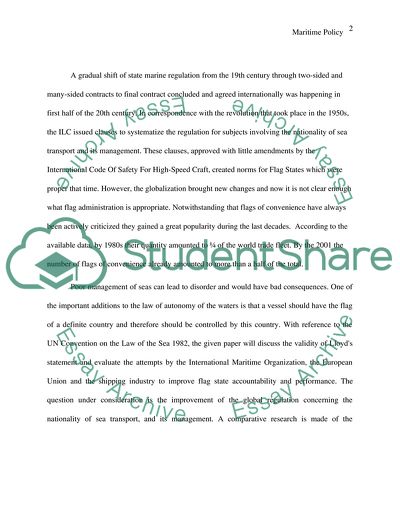Cite this document
(Discussing Lloyds Statement about Using Every Opportunity in Research Paper, n.d.)
Discussing Lloyds Statement about Using Every Opportunity in Research Paper. Retrieved from https://studentshare.org/law/1726254-maritime-policy
Discussing Lloyds Statement about Using Every Opportunity in Research Paper. Retrieved from https://studentshare.org/law/1726254-maritime-policy
(Discussing Lloyds Statement about Using Every Opportunity in Research Paper)
Discussing Lloyds Statement about Using Every Opportunity in Research Paper. https://studentshare.org/law/1726254-maritime-policy.
Discussing Lloyds Statement about Using Every Opportunity in Research Paper. https://studentshare.org/law/1726254-maritime-policy.
“Discussing Lloyds Statement about Using Every Opportunity in Research Paper”, n.d. https://studentshare.org/law/1726254-maritime-policy.


